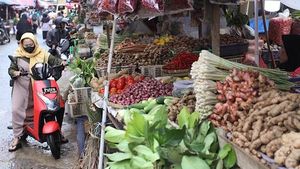PORT-AU-PRINCE, Haiti — The streets of Cité Soleil echoed with horror over the past weekend as gang violence spiraled out of control, resulting in the deaths of at least 184 individuals, primarily elderly residents. This tragic massacre was reportedly instigated by Micanor Altès, known locally as "Wa Mikanò," who sought vengeance after his child fell seriously ill and died, prompted by accusations made by a Vodou priest attributing the illness to witchcraft among the community’s elderly.
The government of Haiti condemned this act as gang members ruthlessly pursued those suspected of clandestine malice. Prime Minister Alix Didier Fils-Aimé described the killings as "an unspeakable carnage," expressing deep sorrow for the loss of life, particularly among defenseless senior citizens caught up amid the protracted struggles between gangs for dominance.
Witness reports detail Altès orchestrated the attack on December 6 and 7, carefully targeting individuals he blamed for his child's suffering. The National Human Rights Defense Network, which is often on the front lines of monitoring human rights abuses, didn't hesitate to call this brutal episode one of the deadliest instances of gang-related violence to date.
“On Friday, December 6, Micanor shot and killed at least sixty elderly people. On Saturday, he and his crew murdered at least fifty more using machetes and knives,” asserted representatives from the network. Despite these heinous acts, the gang leader still lost his child, which raises questions about the sanity behind such violence.
Reports from the United Nations echo this tragedy, with outgoing UN Human Rights Chief Volker Türk stating, "These latest killings bring the death toll this year alone to a staggering 5,000 people." This stark figure highlights the rampant gang violence and murder deeply ingrained within the nation, which has seen widespread displacement as rival gangs vie for control of neighborhoods.
Cité Soleil, the hardest-hit area of this massacre, is marked by systemic poverty and political instability, nurturing gang proliferation. The United Nations has repeatedly urged the global community to take stronger measures, advocating for financial and logistical support to tackle law enforcement inadequacies.
According to the UN Secretary-General, António Guterres, the urgent need for international assistance has never been clearer, calling on all Member States to bolster the Multinational Security Support mission. During this dire situation, aid has not only been sought for law enforcement but to help curb the flow of arms entering Haiti, contributing to this lethal atmosphere.
While the violence has drawn condemnation from various corners, including the United Nations, the question remains: will this be enough to spur decisive action? There is also concern about the role of the Vodou community, often misunderstood and scapegoated during such volatile episodes.
Days after the massacre began, Cité Soleil seemed trapped under the control of local gangs, with residents fearful to leave their homes. A local source described it as creating "an informal siege," as civilian movements were heavily restricted, with gang members actively patrolling the area.
This was not Altès' first encounter with deadly violence. Preliminary investigations indicate he had previously led brutal acts against those he deemed threats to his power, including executing 12 elderly women under similar accusations just years prior. This pattern of targeting the elderly, particularly those involved with Vodou practices, suggests there’s something more sinister at play—an intersection of superstition and lawlessness.
Residents expressed deep-rooted fears, stating even those not directly involved could become victims of the chaos, illustrating the pervasive dread deeply embedded within the community. "I was told my 76-year-old father was among those killed," said one distraught local, who wished to remain anonymous, continuing, "My relatives are still trapped inside, and I don't know how many more have perished from this madness." This heartbreaking admission is but one of many stemming from emotional accounts of families torn apart by violence.
With distrust brewing between gangs and the government struggling to retain control, the local populace faces the brunt of this storm. The UN, acknowledging the challenges faced by local law enforcement, maintained calls for comprehensive investigations and justice for the victims of this horrific act.
Looking broader, analysts blame the environment of instability for the growth of gang control across Haiti. Diego Da Rin, from the International Crisis Group, noted, "The fact we have so many doubts about what happened days after the massacre is a signal of the level of control gangs have over the population."
Yet, the Nicolas-led government, who took power during tumultuous times, needs to navigate these entrenched issues with finesse and commitment. The people of Cité Soleil, and all areas affected by gang violence, deserve safety and order as they go about their daily lives.
But will the international community respond adequately to stem this tide of violence? Given the historical precedents and current circumstances, the path forward remains cumbersome at best.
The plight of Haiti continues, with the barbaric incidents underscoring the urgent necessity for intervention. There’s hope; perhaps, through cooperation and humanitarian action, progress can be made to enable peace and restore dignity to lives torn apart by needless violence. Yet, the grim reality remains: Haiti's future hinges on united efforts to dismantle the roots of this persistent crisis.



